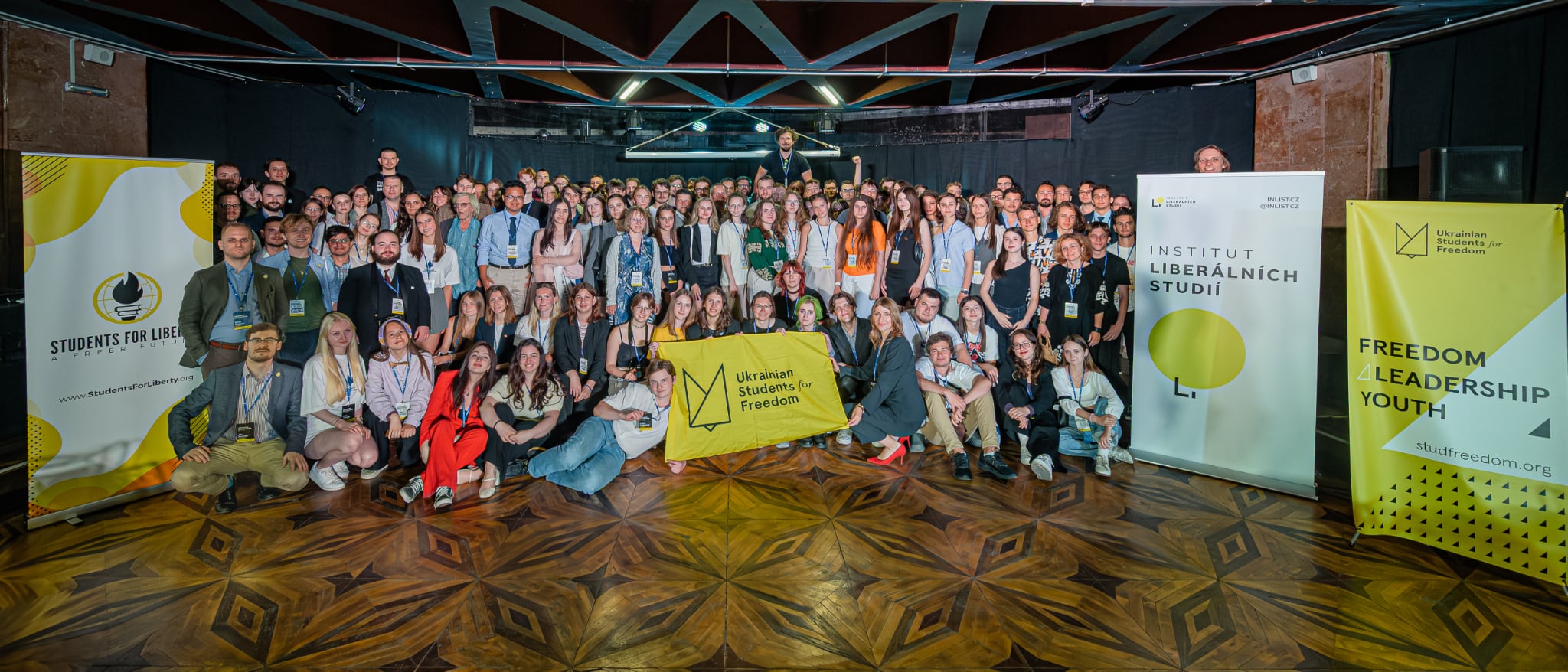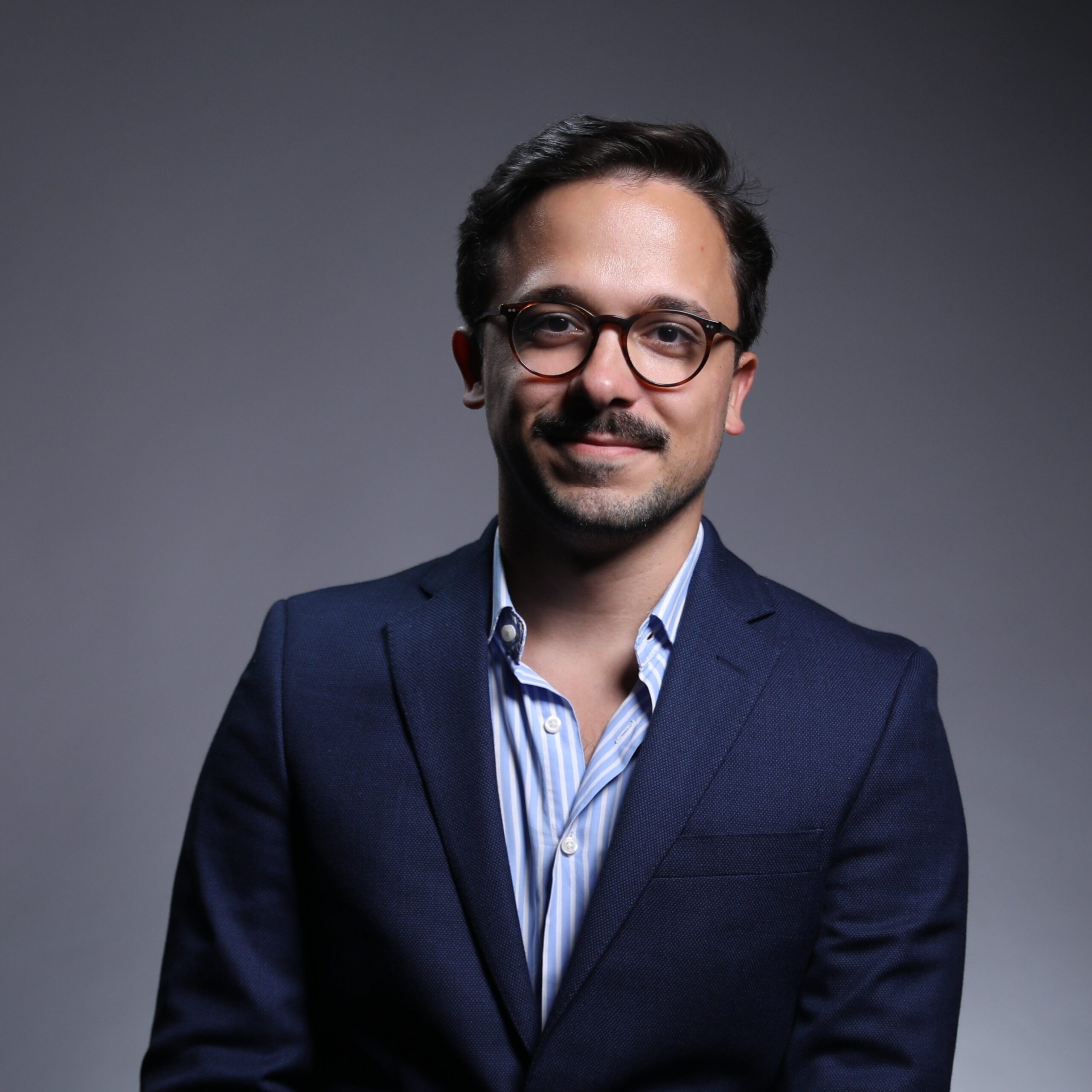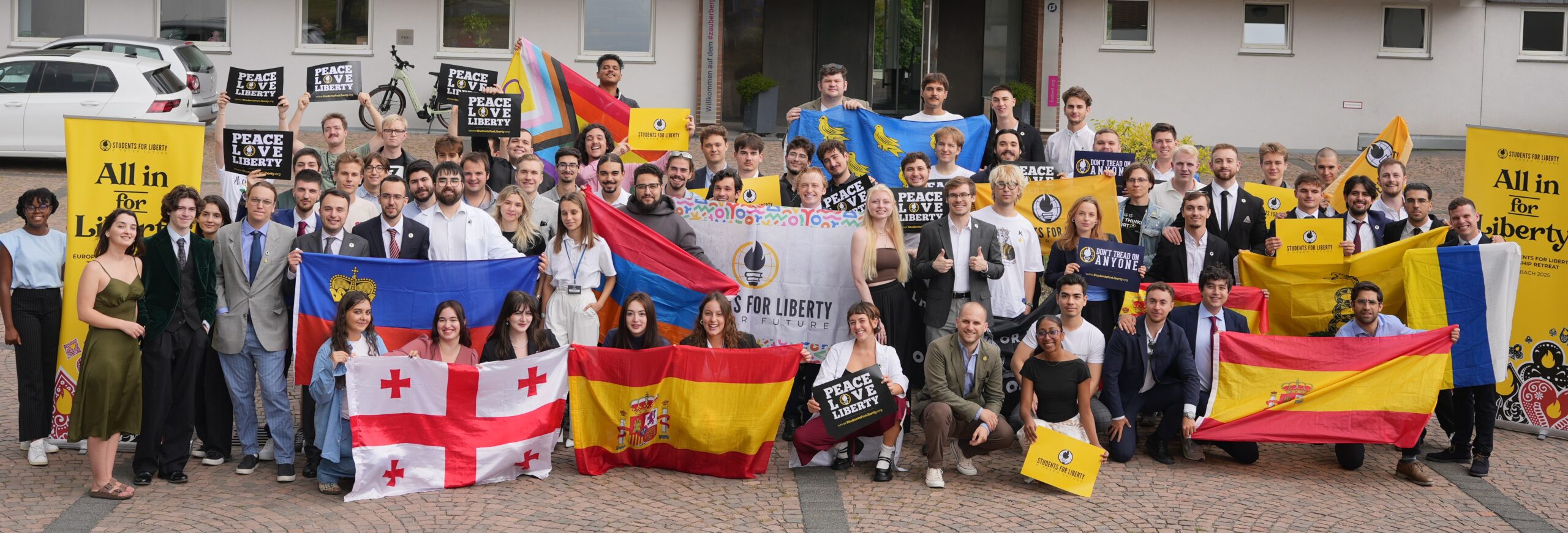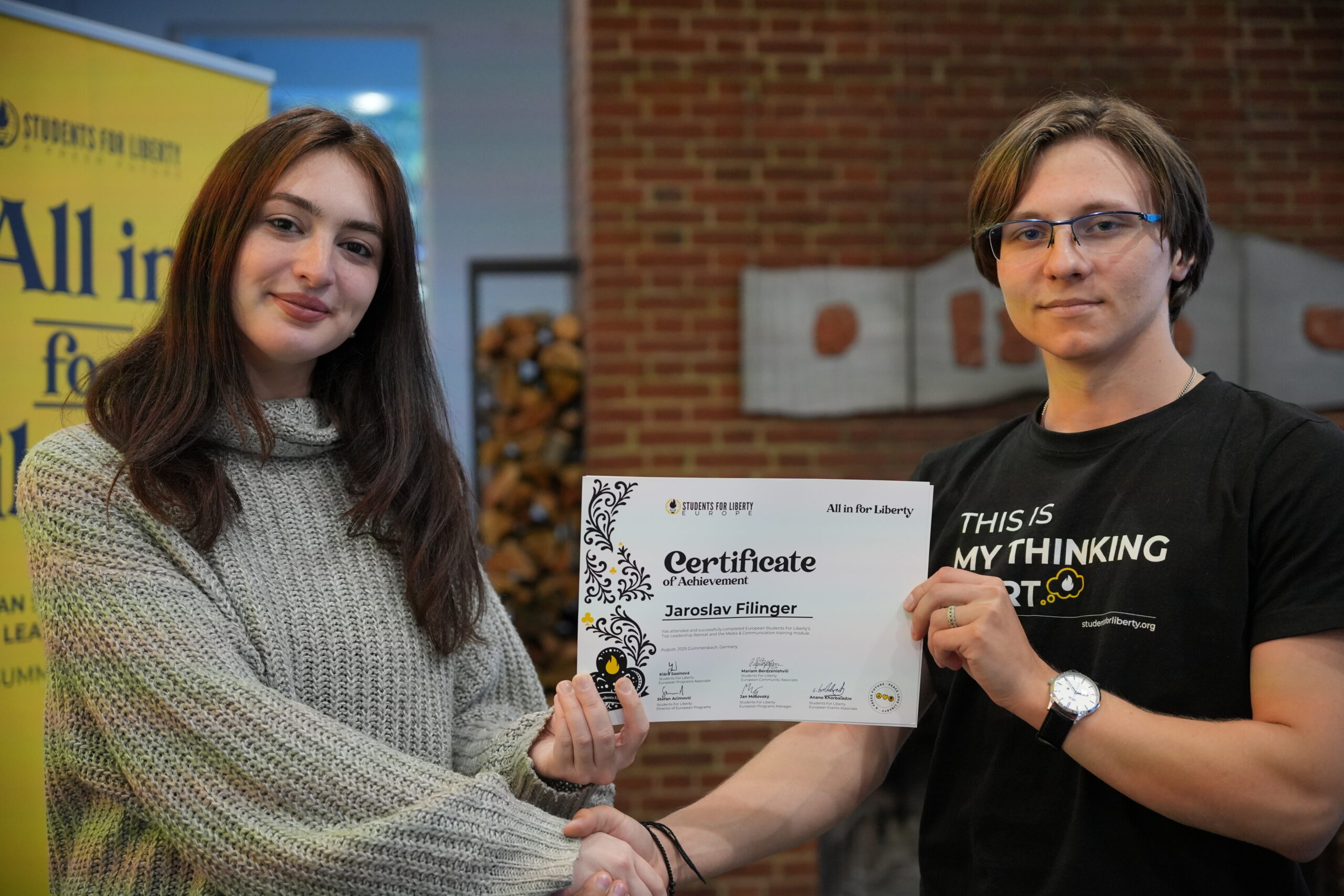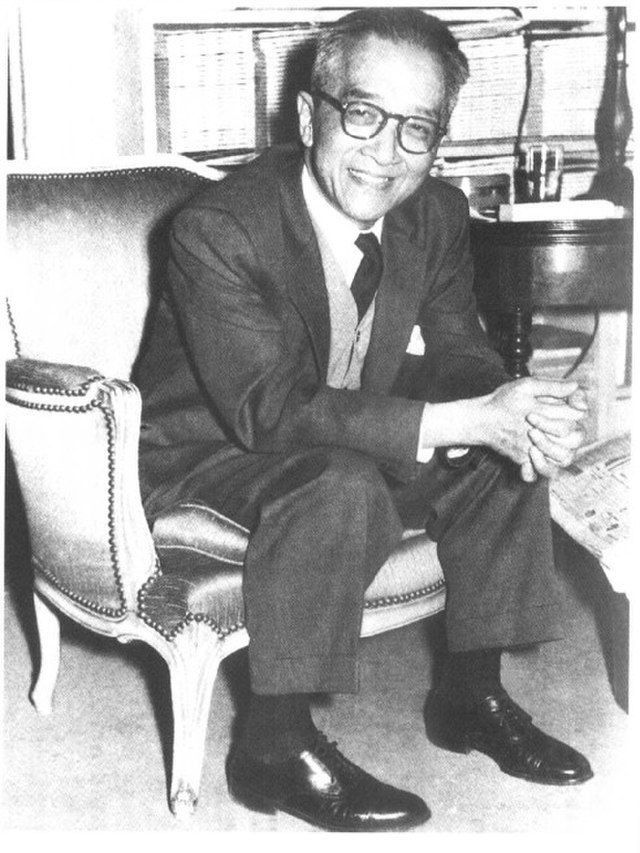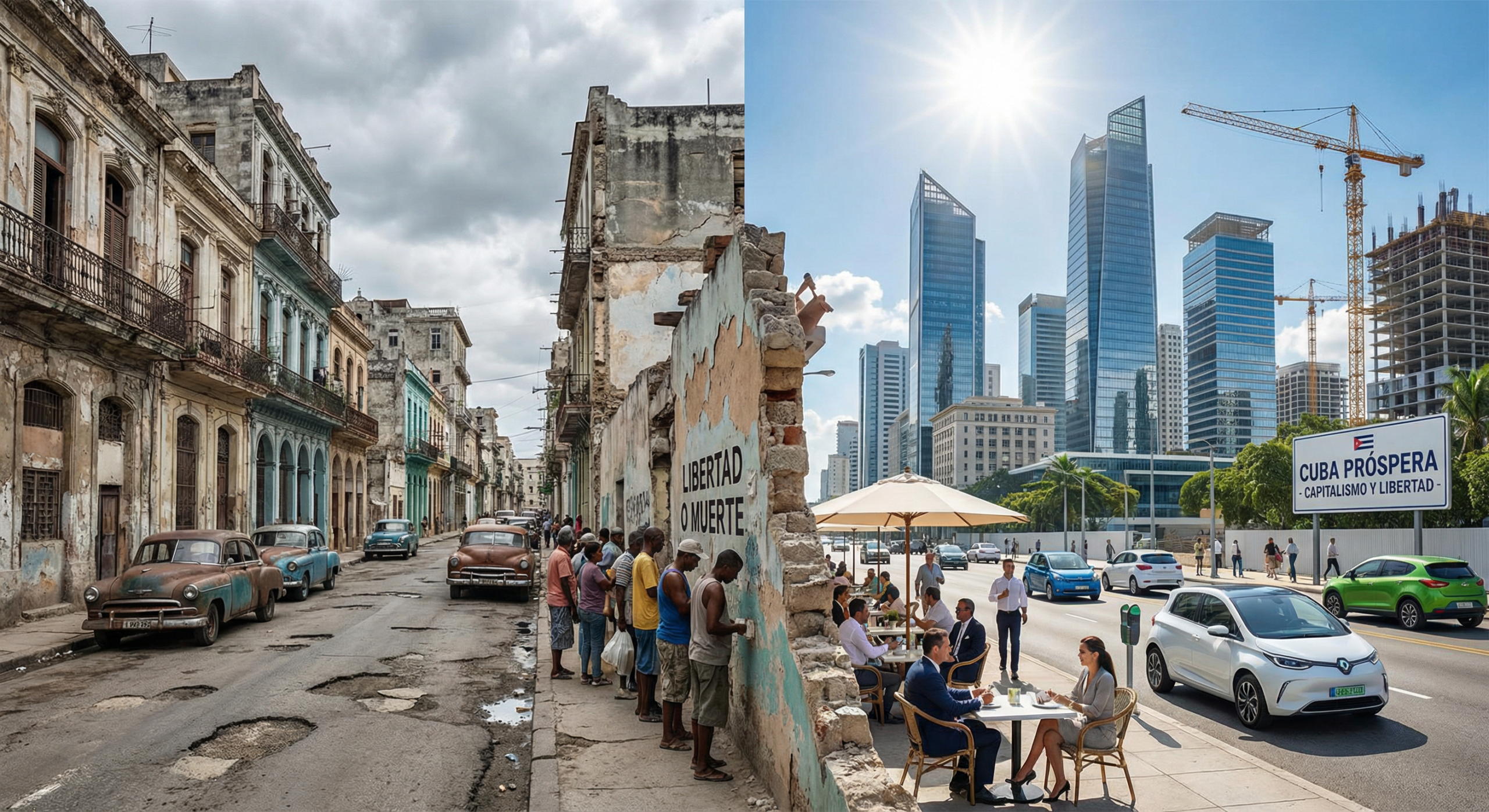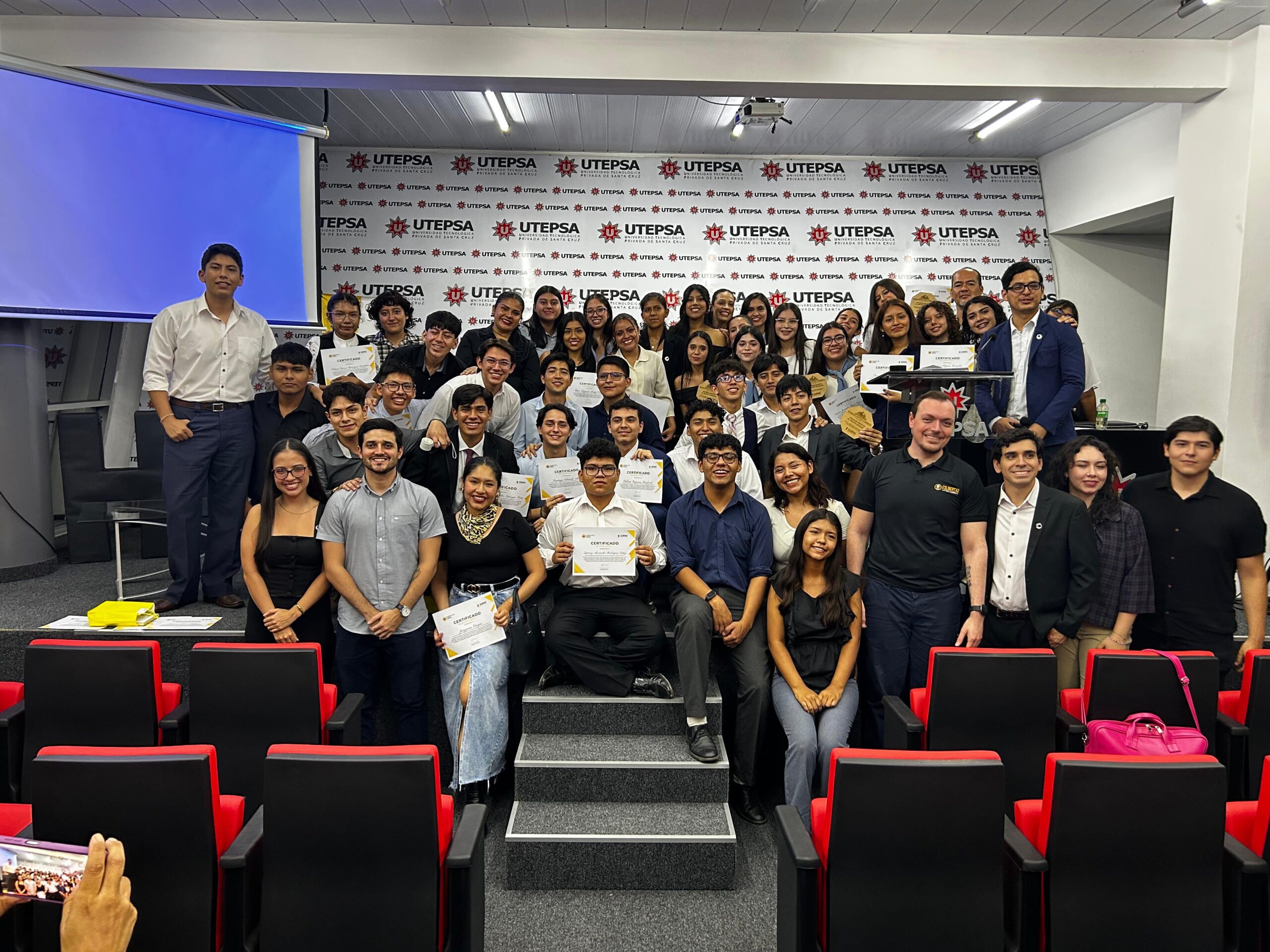The now annual Ukrainian Renaissance conference returned for the third time in 2025. The event, co-hosted by Students For Liberty, Ukrainian Students for Freedom, and Institut liberálních studií, took place again in Lviv on July 4-6, following five days of training seminars for student volunteers.
Ukrainian Renaissance 2025
The event’s third edition was the strongest yet: 251 visitors from 27 countries joined for the conference, one third of them travelled from outside of Ukraine – and after all, connecting the local and international friends of liberty and build bridges where wartime measures have made connections more complicated remains the main goal of the conference.
Over the weekend, we heard in total from 47 speakers over 19 talks and panels.
The conference kicked off with an opening reception on July 4, the American Independence Day, and independence was indeed a major topic of conversation, starting with a welcome by the First Deputy Mayor of Lviv, as well the Head of Lviv Investment and Projects Office, who introduced Lviv as the city of dreamers, and continuing with an address by Tom Palmer, whose talk was, in the spirit of July 4, titled Ukraine – Land of the Free and Home of the Brave. The first evening concluded with an Independence Day themed quiz.
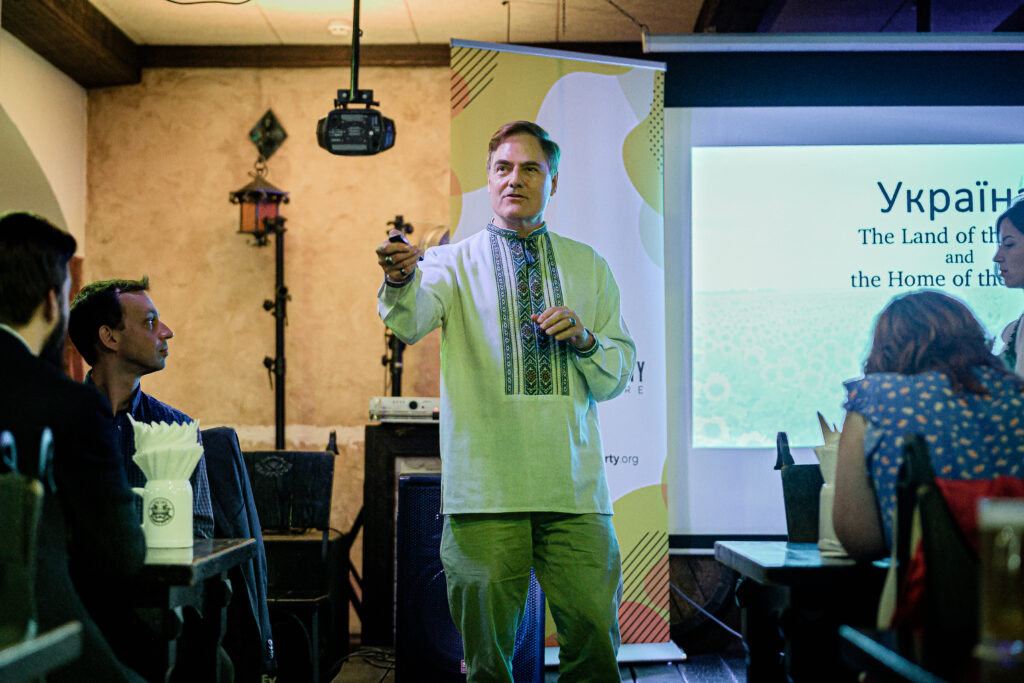
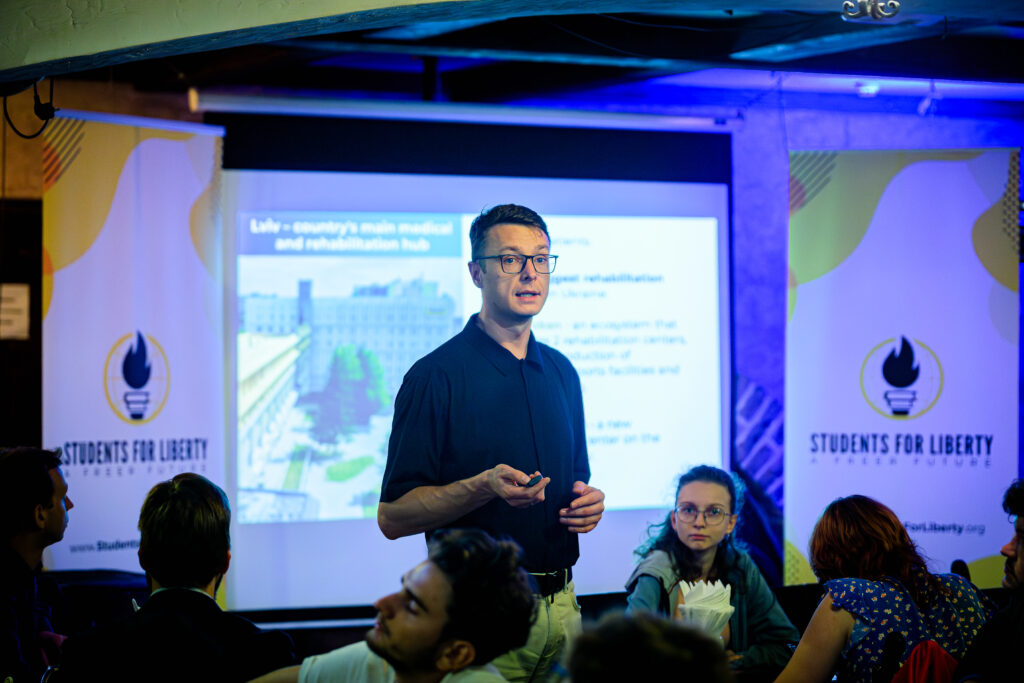
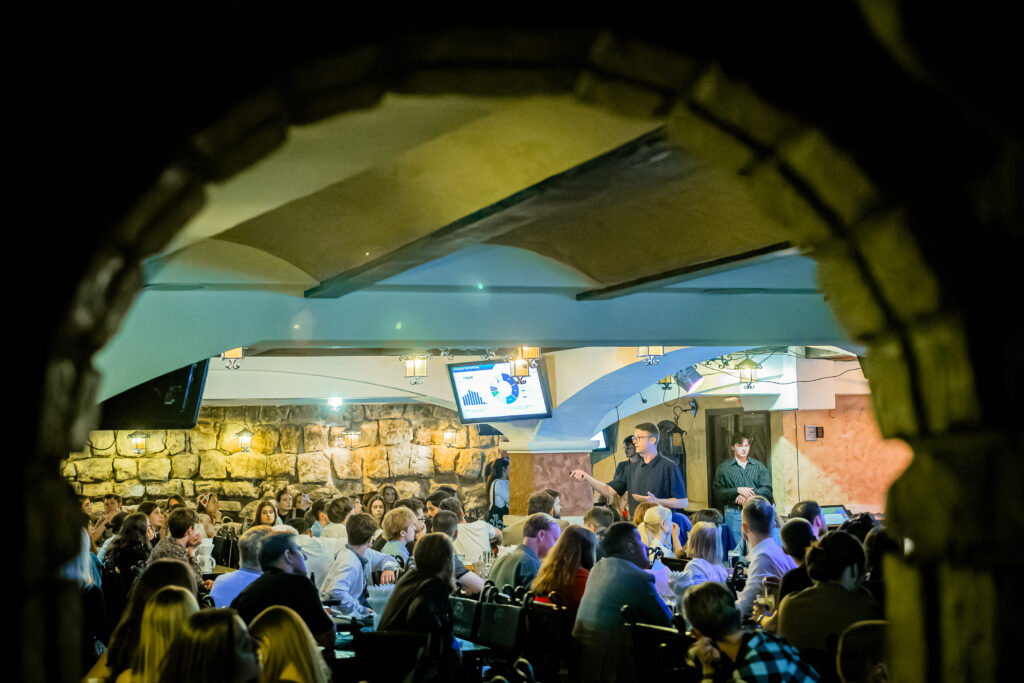
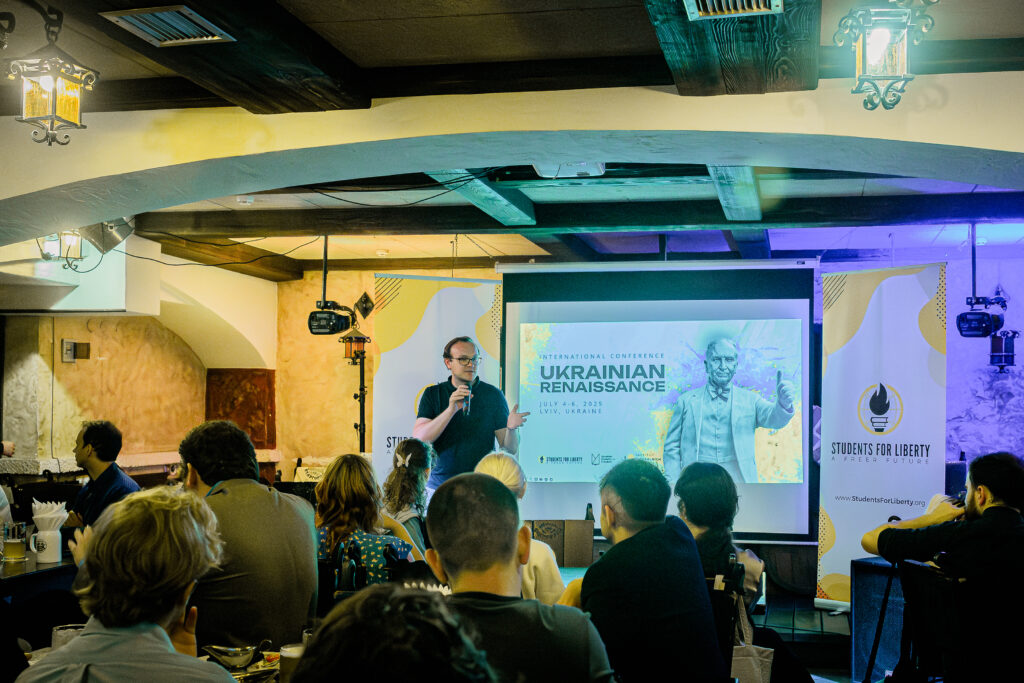
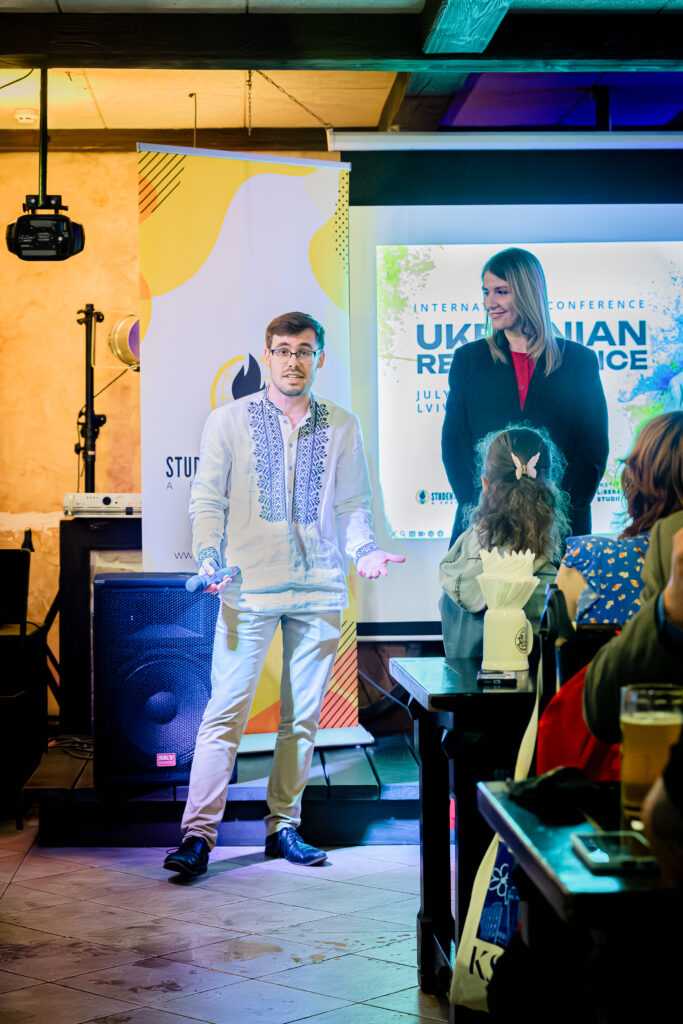
On Saturday and Sunday, we covered the important issues of building resilient alliances improving Ukrainian and European security and economic situation, as well as the importance of strong civil society, and moments when institutions have recently been critically tested: the recent elections in Romania, increasing government overreach in Georgia, corruption in Hungary or Slovakia, and the ongoing expansion of executive power in the United States.
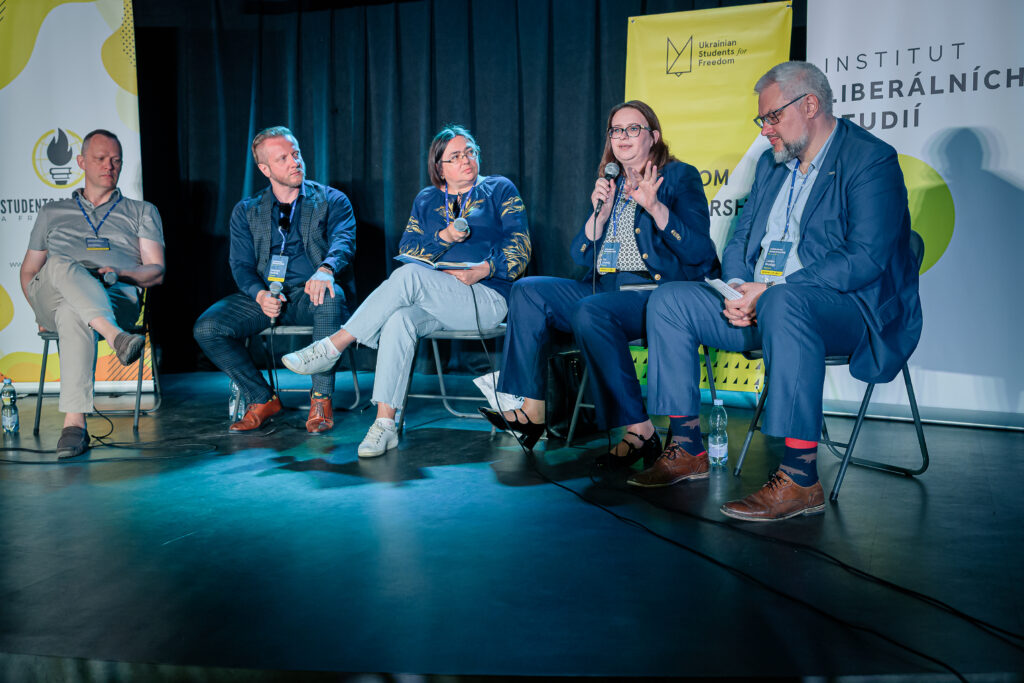
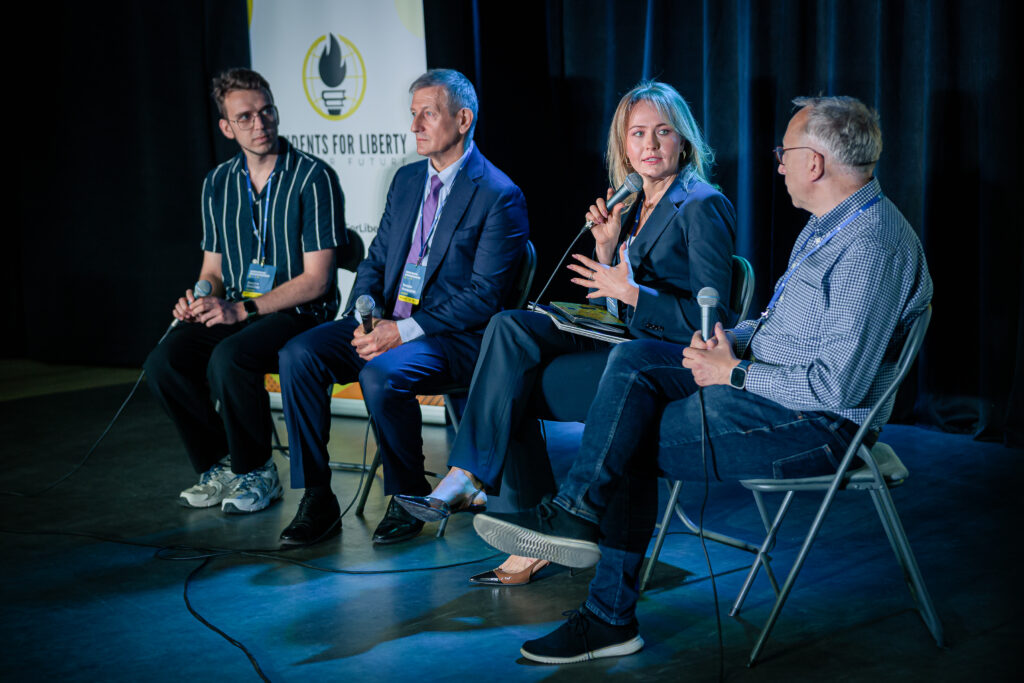
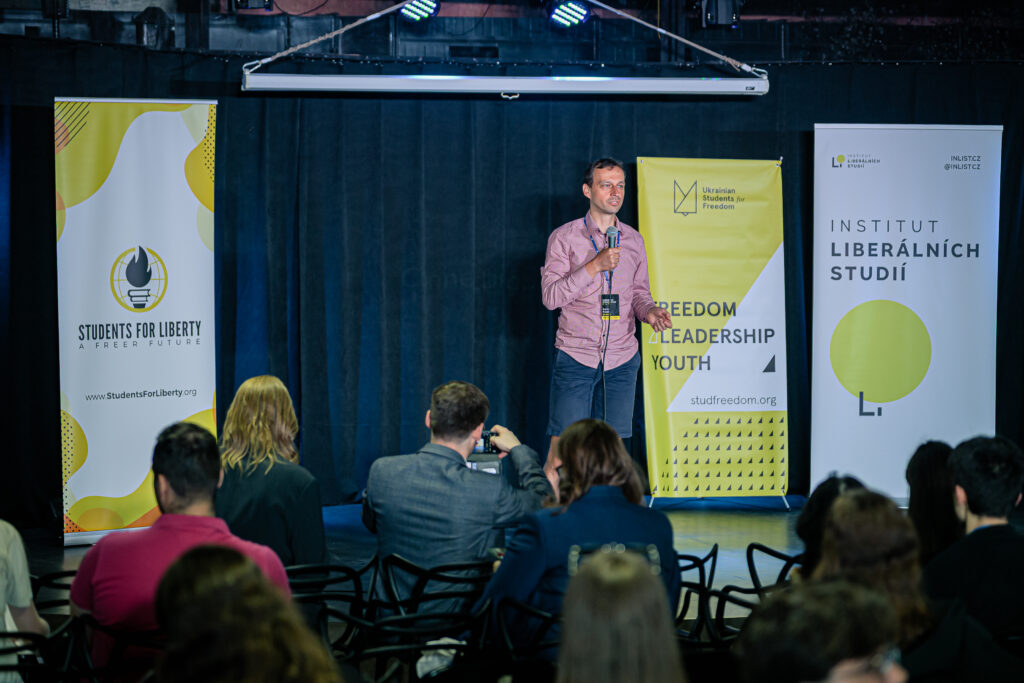
Our main topic this year however was entrepreneurship, and how Ukrainian and foreign businesses find ways to innovate and improve their services even amid the conditions of the Russian invasion.
Among this year’s speakers were again expert economists, journalists, politicians and policy makers, humanitarian workers, many more, including representatives of our various partner organisations: we welcomed Harrison Griffiths from the Institute of Economic Affairs in London, Christian Năsulea from the Institute for Economic Studies – Europe, who came from Bucharest, Romania, as well as his colleague Radu Nechita, several Polish speakers including Lukasz Wojdyga or Sebastian Stodolak from the Warsaw Enterprise Institute in Poland, Tamar Jacoby from Progressive Policy Institute’s New Ukraine project, LYMEC’s Even Diot, Richard Vilkus representing Slovakia and INESS, Maté Hajba from Hungary’s Free Market Foundation, and many others friends of liberty from around the world. Our volunteers and team members also took to the stage once again.
Unlike last year, the conference was not interrupted by blackouts, but signs of Russia’s terror were still felt, not least during the air raid alerts that went off on two occasions during the event, or from the stories of participants joining the event from Kyiv and eastern parts of Ukraine.
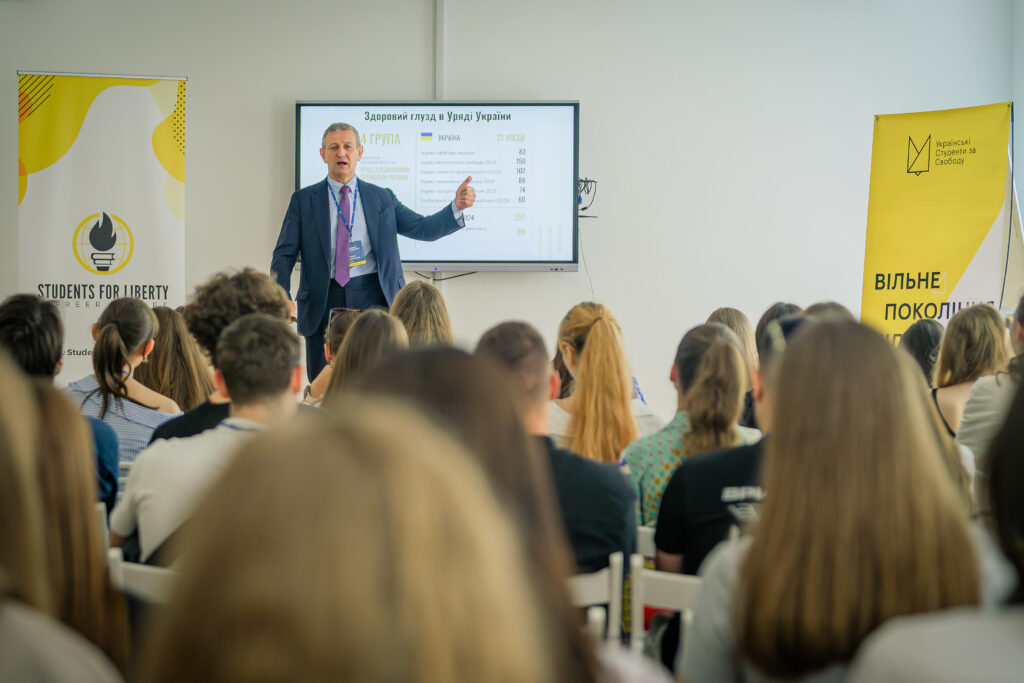
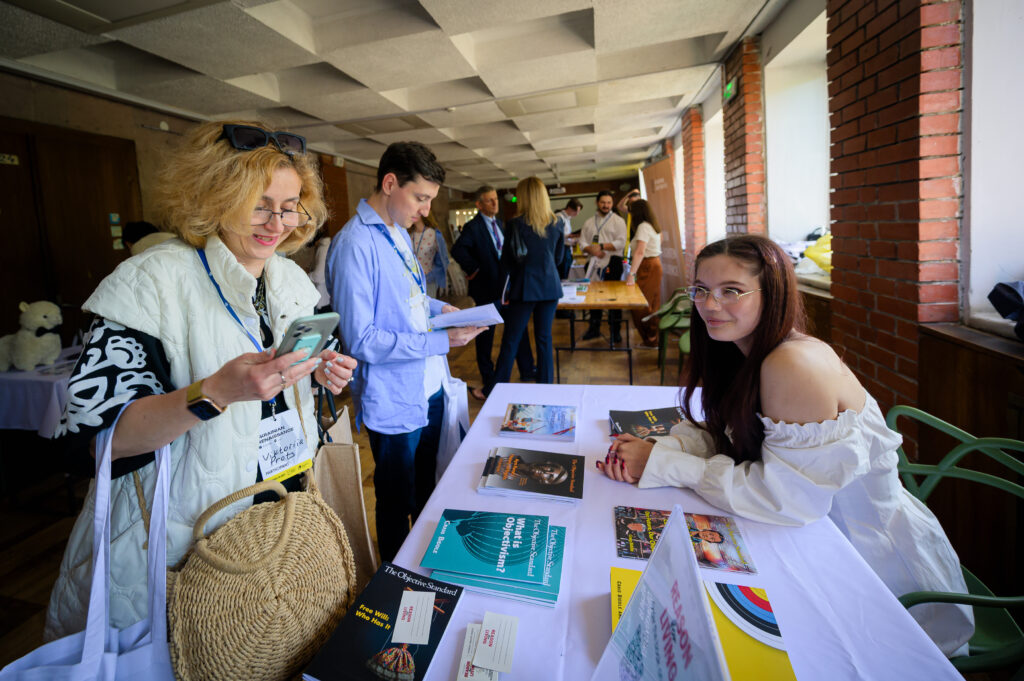
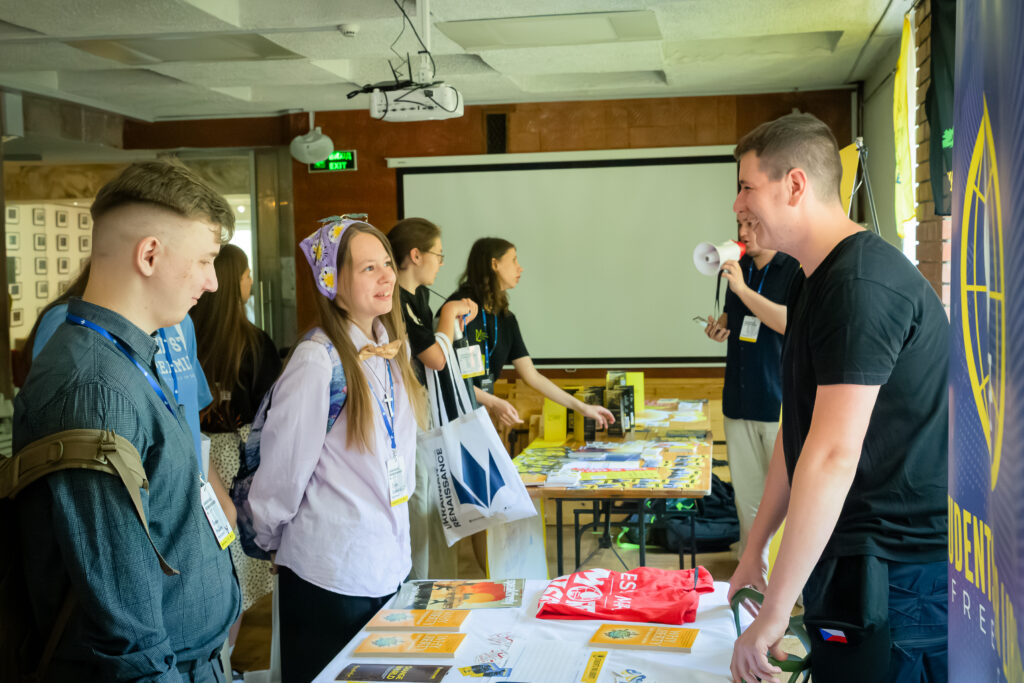
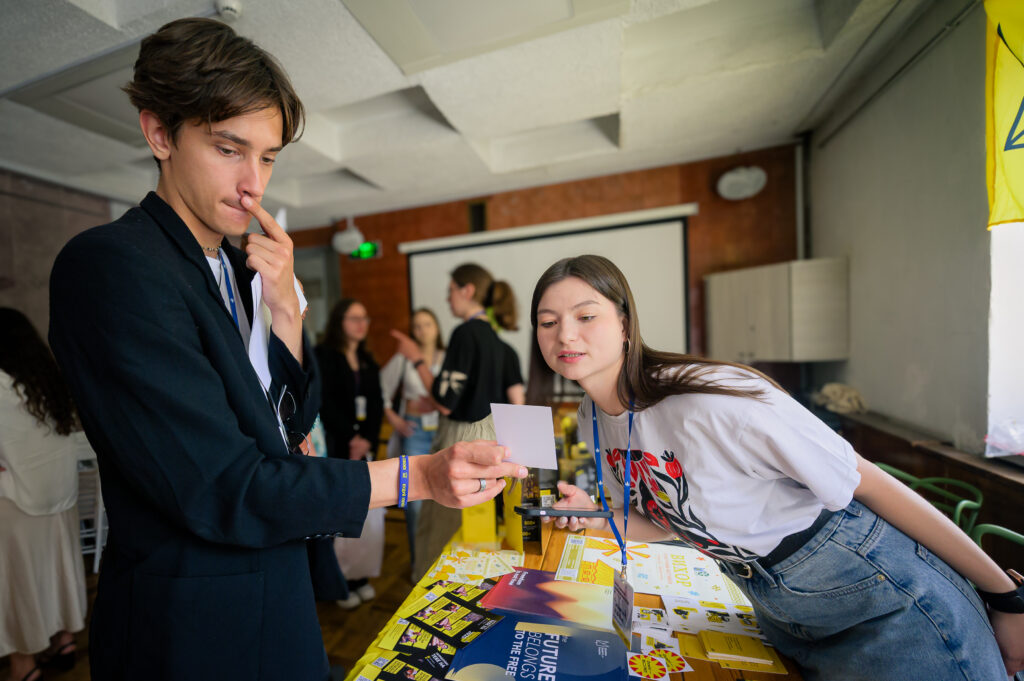
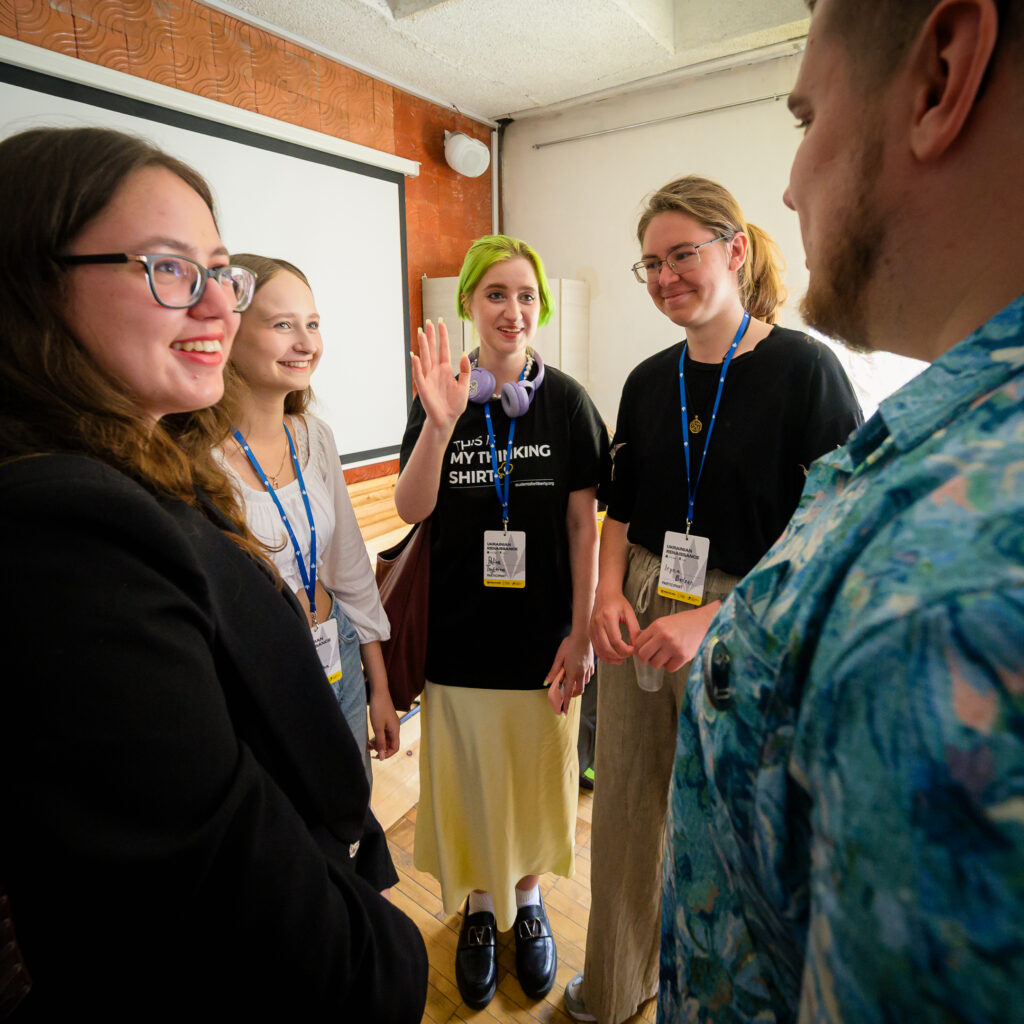
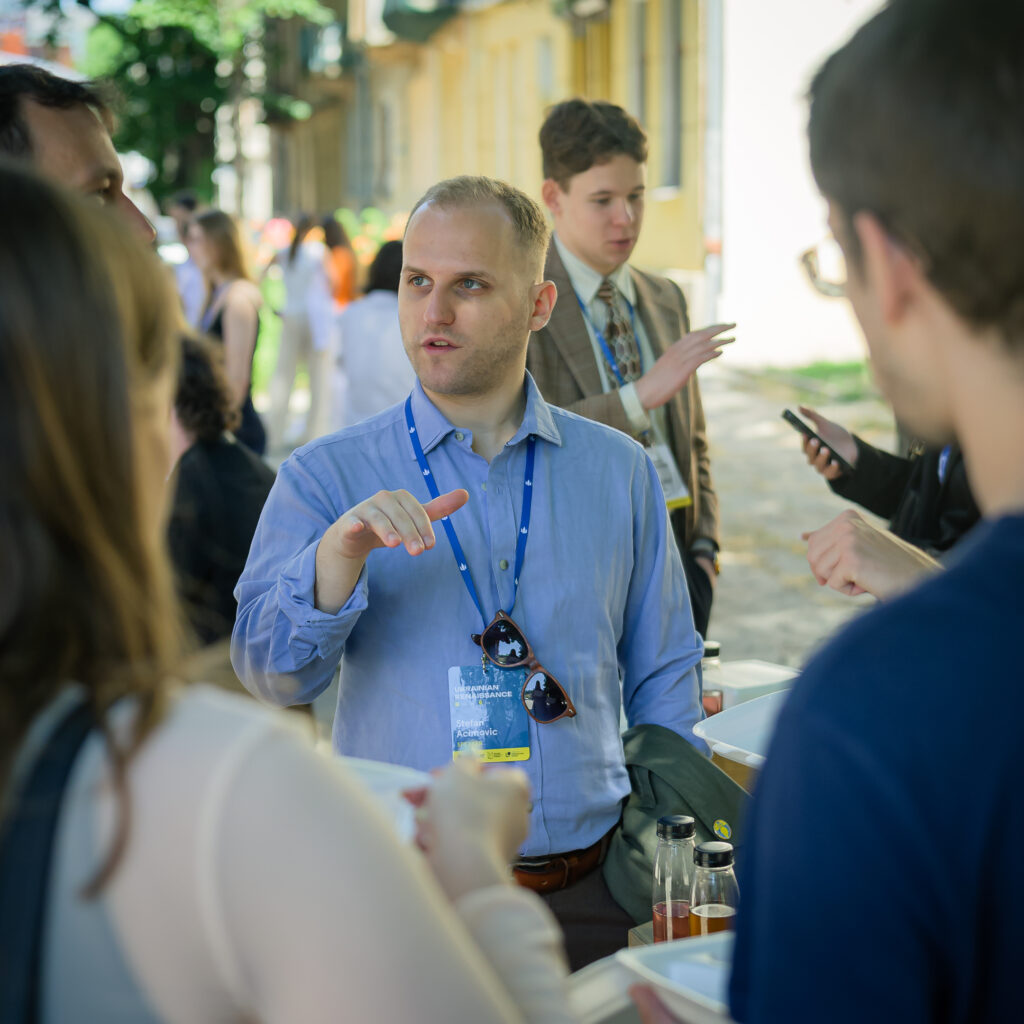
Once again, the conference concluded with a Sunday afternoon tour of Lviv, wrapping up with a stop at the birth house of Ludwig von Mises.
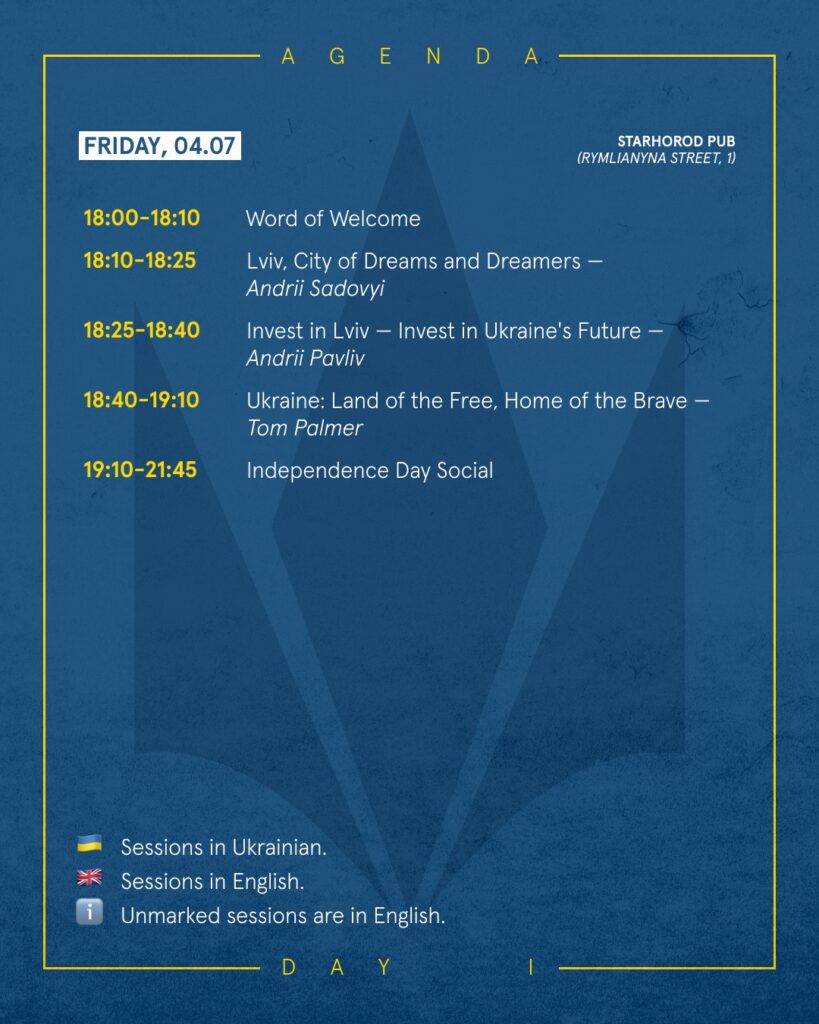
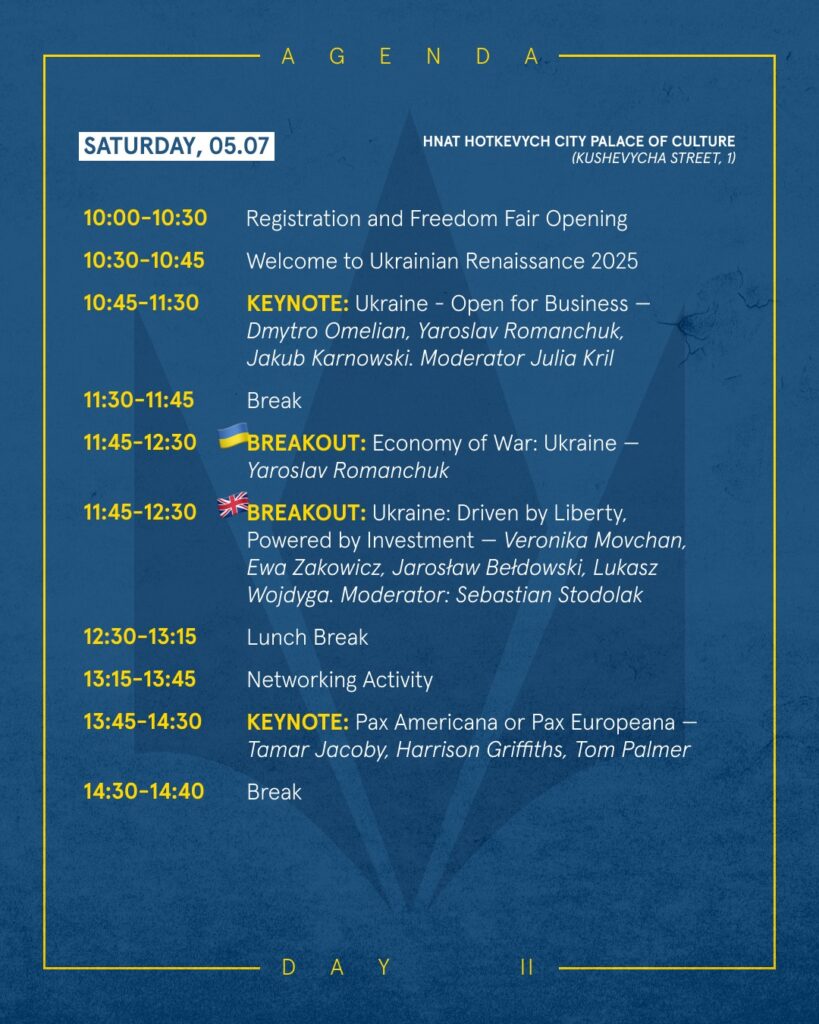
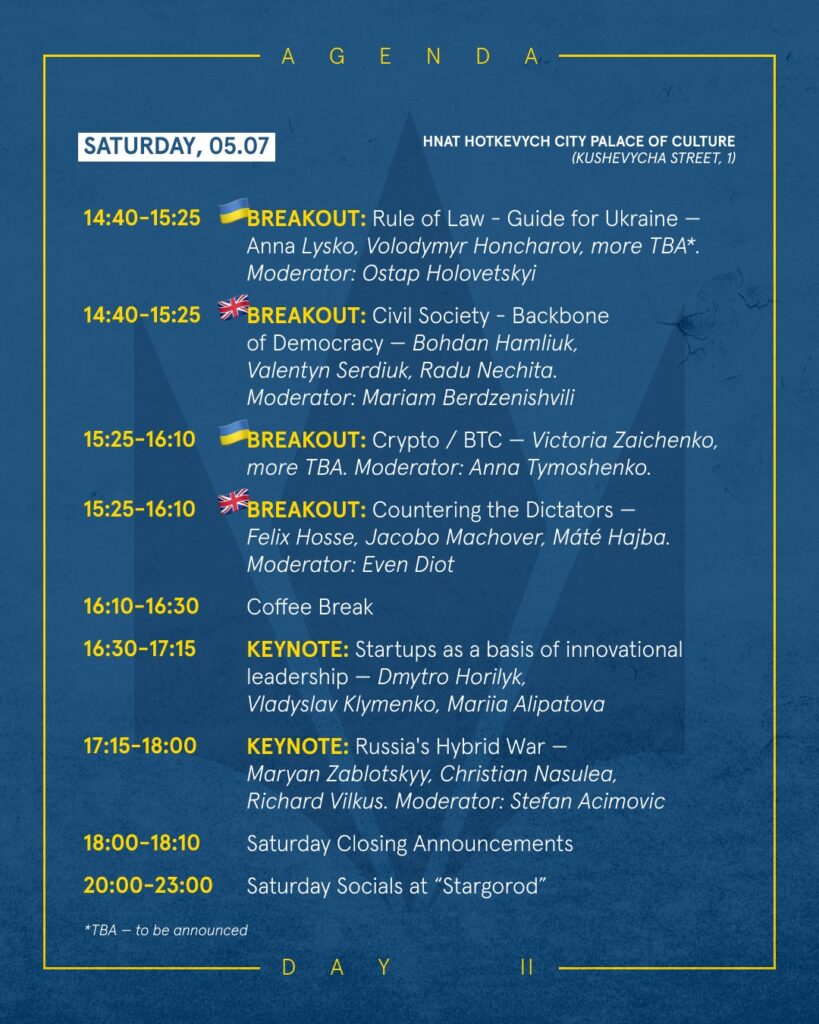
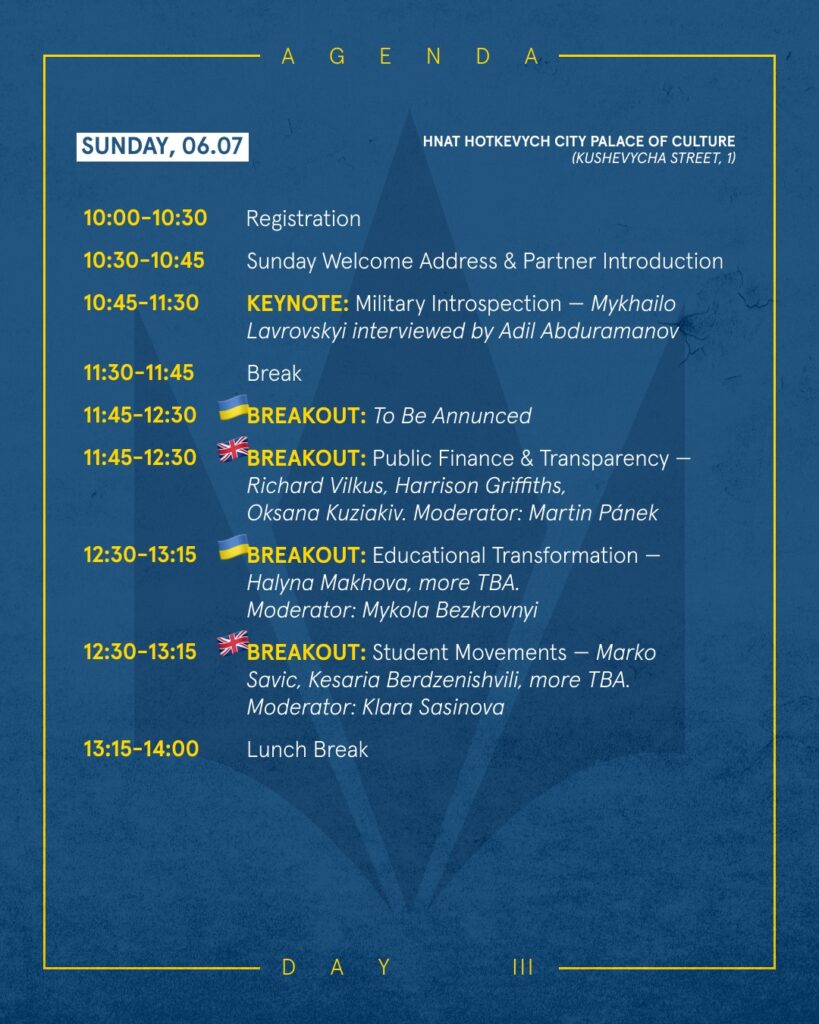
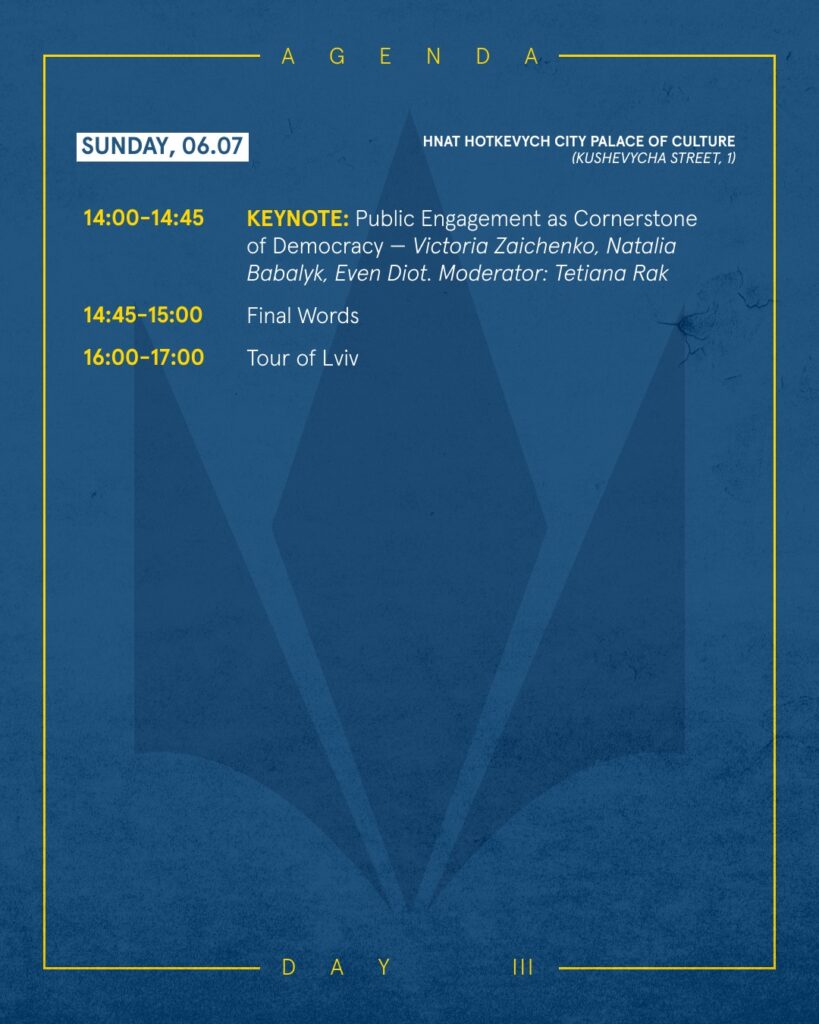
Studio Liberty & Difficult Dialogue Colloquium
For the participating Students For Liberty volunteers, this year’s edition was much more than a weekend conference: 20 of our selected student leaders participated in the Studio Liberty and Difficult Dialogue trainings.
Studio Liberty is our annual communications and social media training, which this year took place from Monday to Thursday, June 30 to July 3, with students learning everything from campaign planning, blog writing, and principled liberal messaging to technical skills such as running paid ads, working with video editing tools, and other valuable skills they can use to amplify their voices.
On July 4 before the Ukrainian Renaissance conference kicked off with an evening reception, the volunteers also participated in the Difficult Dialogue Colloquium, a global project spanning all of Students For Liberty’s active region, where students learn to approach contested discussion topics with mutual respect and with the goal to understand the other side’s reasoning.
In the European edition of the Difficult Dialogues, students discussed two topics: whether major powers, like the US or NATO, should adopt a more interventionist or more non-interventionist approach, and whether the EU has overall contributed to or impeded economic and individual freedom. On both topics, we heard strong arguments from both sides, and the discussion was followed left everyone with plenty to think about.
Both of the trainings brought to Lviv 20 of our students from 14 countries, including both the locals from Ukraine and Central Europe, and from places as distant as Spain, Portugal, Georgia, or Ireland.
Following Studio Liberty and Difficult Dialogues, the students helped as volunteers running various aspects of the Ukrainian Renaissance conference, wrapping their week of freedom in Ukraine.
Ukrainian Renaissance is bound to return in 2026 for its fourth edition, in what will hopefully be not just a week of freedom, but finally a year of freedom from the ongoing Russian invasion.
